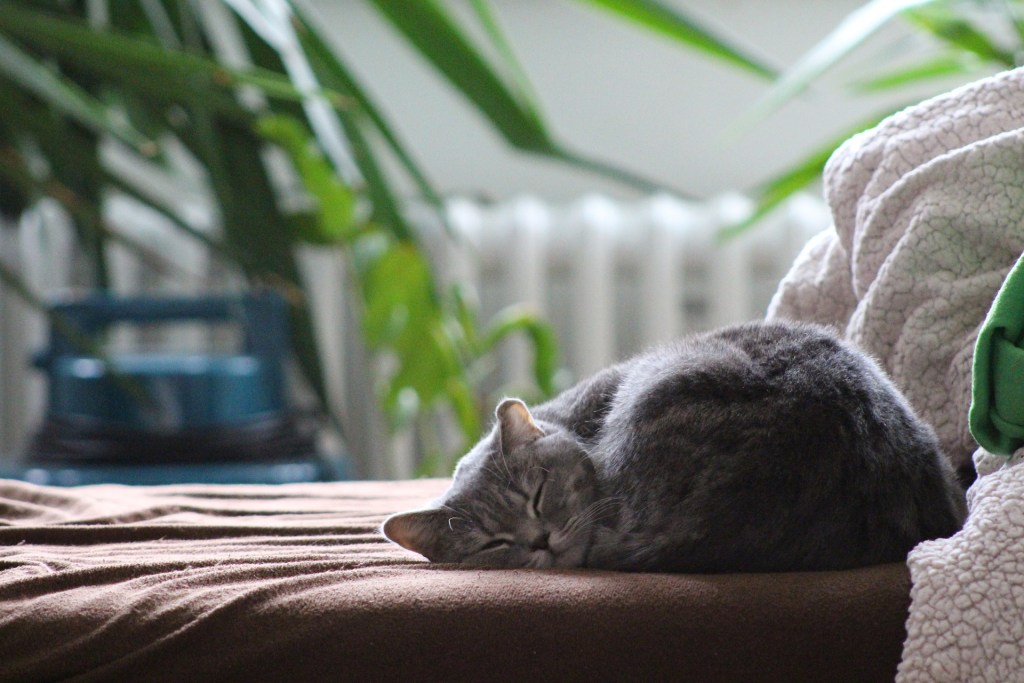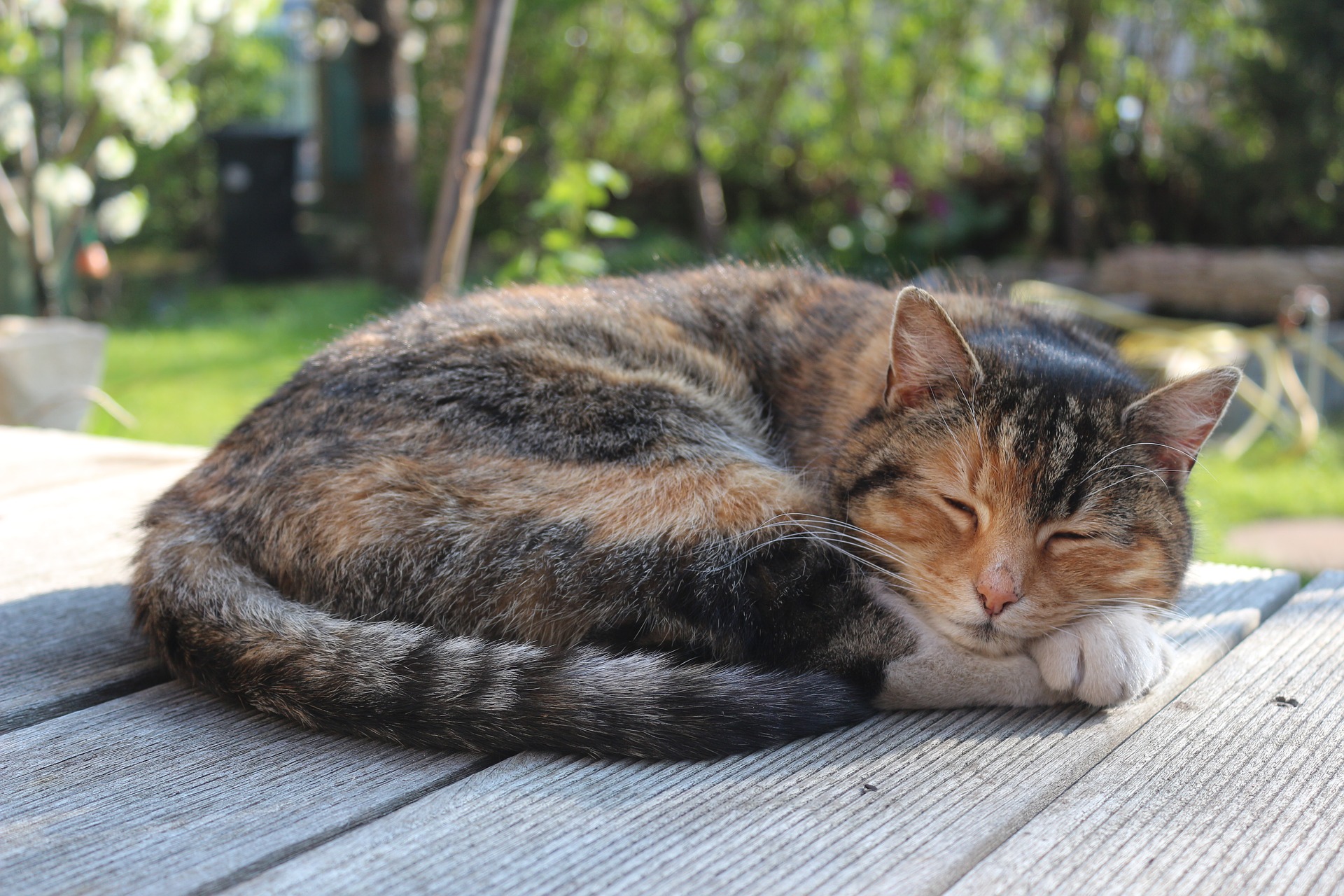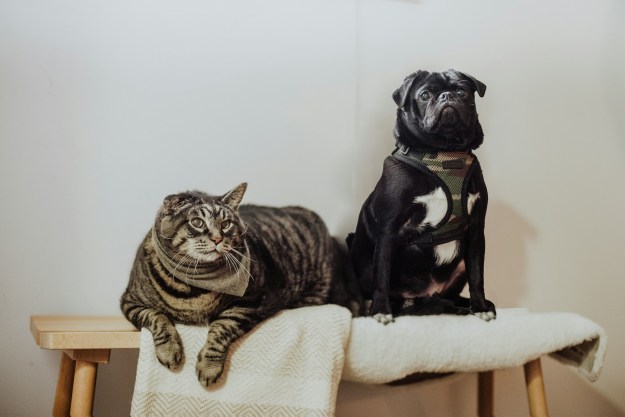Cats have some pretty curious sleeping habits, and you might notice that your cat sleeps in some unusual positions. Often, cats tend to curl up into tight little balls when they sleep, and you might wonder how that position can possibly be comfortable. Truth is, there are a few reasons why cats choose this sleeping position, and your cat is probably quite comfortable even when she’s completely curled up. If your cat sleeps in a ball, you don’t have to worry. There’s nothing wrong and she’s just doing what comes naturally to her. In fact, there are pretty logical explanations behind most of your cat’s peculiar sleeping habits.

Why do cats sleep in a ball?
According to PetMD, there may be several reasons why your cat sleeps curled up into a ball. By curling up tightly, your cat is conserving his body heat, so he stays nice and warm during his nap. You might notice your cat curls up more tightly when it’s cold in your house.
Your cat’s position is also rooted in safety. By curling up into a tight ball, your cat is naturally defending himself against predators. You might notice that your cat curls up so he can fit into a tight space. For example, he might wedge himself into the corner formed by the arm and back of your couch. This position provides your cat with some solid walls around him, so he might feel less vulnerable and more comfortable going to sleep.
Cats aren’t the only animals to sleep curled up. Many other mammals, like bears and foxes, assume this position, too. Even birds tuck up a foot into their body while sleeping, which can help to retain heat.
Why do cats like to touch you when you sleep?
According to Union Lake Veterinary Hospital, if your cat touches you when you sleep it indicates that she’s chosen you. Cats can be pretty picky about who they sleep with, so take this as a compliment.
Your cat may have chosen you for many reasons. If you’re the primary person in the house who feeds her, that care may have helped to strengthen your bond. Cats might also seek you out because your bed is a warm and cozy spot, or because they trust you and you help to make them feel safe. It’s also possible for cats to have favorite humans in the home, and if your cat curls up to you and touches you at night, she may just be demonstrating that you’re her favorite person.

Why is it bad to sleep with your cat?
Sleeping with your cat can be comforting and reassuring to your both, and you might enjoy that your cat has chosen to curl up with you each night. But letting your cat sleep in bed with you can also lead to some problems.
If you or your partner have allergies, having your cat in your bed all night can make those allergies worse. If your cat moves to different spots in the bed, you might find that you become uncomfortable from trying to sleep in different positions to give your cat space.
It’s also possible that your cat may wake you up repeatedly at night. An active cat might shift around in bed frequently. Your cat may want to play during the night, so having him in your room with you could disrupt your sleep multiple times a night. These problems don’t always occur, and some cats may be perfectly happy to sleep through the night, but you’ll need to determine what works best for you and your cat.
If you keep a close eye on your cat, you’ll get to know his sleep habits, whether he sleeps in bed with you or in a cat bed of his own. Your cat’s sleep habits can provide important information about his health and comfort. Sudden changes in his sleep habits, like sleeping significantly more or less, may indicate that your cat is experiencing a health issue and may need some help. Unusual changes in your cat’s sleeping positions can also indicate whether he’s not feeling well or is just uncomfortable and having a hard time getting into the positions he normally enjoys. The more you’re able to monitor your cat’s sleep, the better you’ll be able to tell if anything is ever unusual and if your cat might need to see the vet.
Editors' Recommendations
- Why do cats’ eyes dilate? What your pet’s extra big peepers mean
- Cats chirping at birds is totally normal (and here’s why you should encourage it)
- Why do cats twitch in their sleep? The real reasons behind this curious behavior
- Why do cats cover their face when they sleep? This adorable behavior, explained
- Why do cats eat plastic (and when you should be concerned)?


